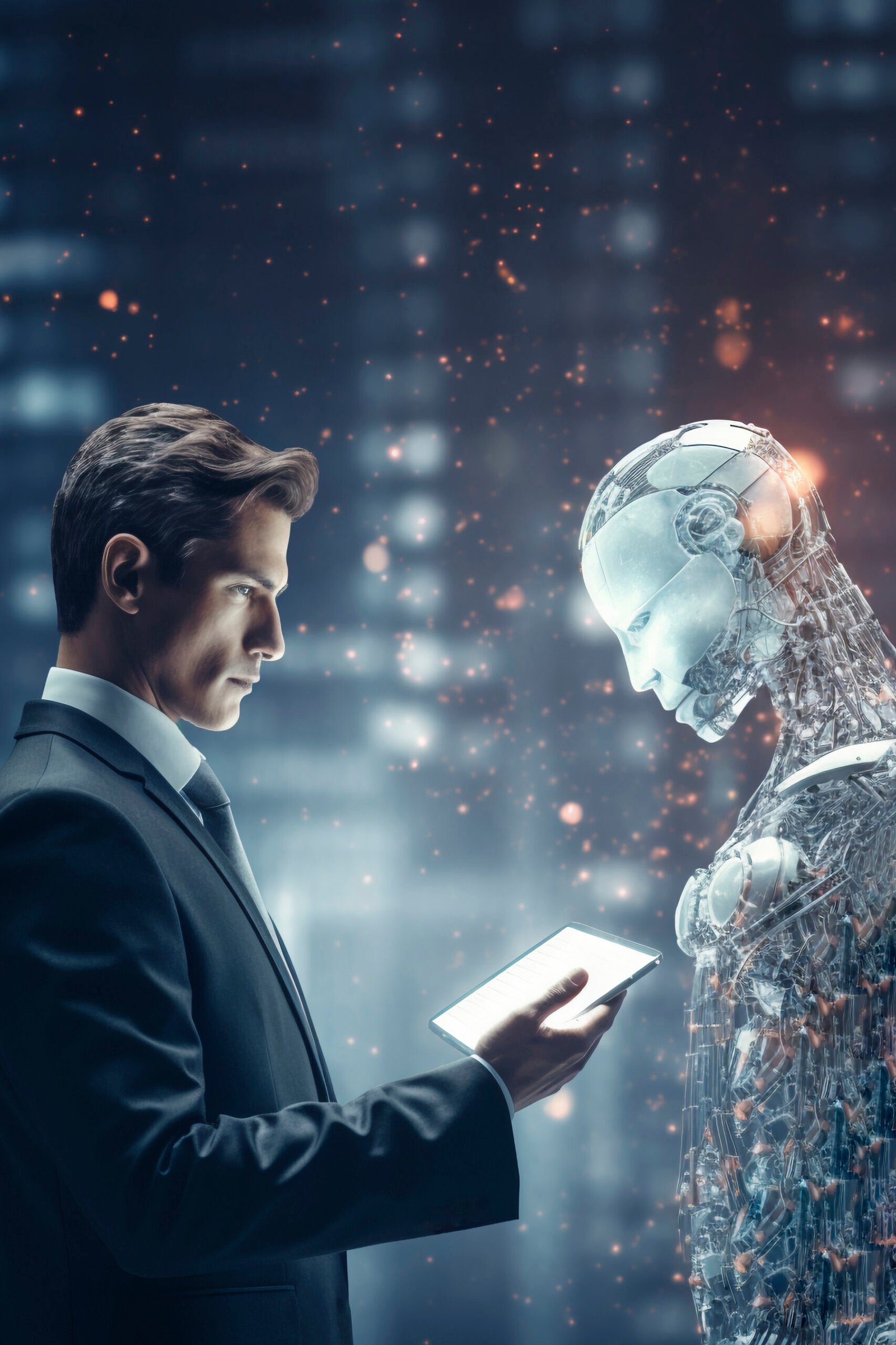
Table of Contents
ToggleArtificial Intelligence as a General Purpose Technology : Transforming Industries and Society
Artificial intelligence general purpose technology The 21st century has witnessed the rapid emergence of artificial intelligence (AI) as one of the most impactful technologies. Its capacity to discern patterns, analyze enormous volumes of data, and reach conclusions has opened the door to a new phase of technological progress. Artificial Intelligence has the ability to impact nearly every facet of contemporary life, with its influence not being restricted to particular areas or industries. Like electricity or the internet, AI is a “general-purpose technology” (GPT) because of its capacity to integrate across various industries. We will discuss what it means for artificial intelligence (AI) to be regarded as a general-purpose technology, how it could affect different industries, the risks and problems it poses, and how it will probably influence the future in this blog.
What Is General-Purpose Technology?
The term “general-purpose technology” refers to inventions that have the potential to significantly impact a broad range of industries and activities. These technologies act as groundwork for complementary breakthroughs in a variety of sectors. Examples of general-purpose technology are the internet, electricity, and steam engines. These breakthroughs produce far-reaching social and economic changes by generating ripple effects that cut across several areas and are not limited to single-use applications.
A technology normally needs to possess three essential features in order to be classified as a GPT:
1. Pervasiveness: It is utilized in many different sectors and industries.
2. Constant Evolution and Improvement: Over time, it continuously changes and gets better, which increases its use.
3. Innovation Complementarity: It makes other inventions possible and encourages their development.
Artificial intelligence satisfies each of these requirements. AI is widely used in a variety of industries, including healthcare, banking, and entertainment. Because of developments in machine learning algorithms, computing power, and data availability, its capabilities are always changing. In conclusion, artificial intelligence serves as a foundation for future innovation, opening doors in a variety of industries, including robotics, automation, personalized medicine, and many more.
Artificial intelligence general purpose technology
Artificial intelligence differs from traditional technology with its unique properties. It makes use of computation and data to learn, reason, and make judgments in ways that were not possible for people to do before. AI is in a unique position to function as a general-purpose technology because of its capacity. Let’s examine some of the main justifications for why AI is regarded as a GPT.
1.Ubiquity Across Industries
Artificial Intelligence is widely used in many different fields, as demonstrated by the following:
• Healthcare: With tools like virtual nurses and AI-driven health monitoring, artificial intelligence is transforming patient care as well as medication research, individualized therapy, diagnostics, and even patient care.
• Finance: By enhancing trading algorithms, identifying fraudulent activity, and offering individualized financial advise, artificial intelligence is revolutionizing the financial services industry.
• Retail and E-commerce: Artificial intelligence enables chatbots for customer support, supply chain optimization, and recommendation engines.
• Manufacturing: AI-driven robotics is increasing manufacturing productivity, decreasing human error, and enhancing safety via predictive maintenance.
• Transportation: AI-powered autonomous cars have the potential to fundamentally alter our understanding of logistics, mobility, and the safety of transportation.
• Education: AI technologies are making learning more individualized, streamlining grading, and even identifying which children are most likely to regress.
• Entertainment: AI-generated material is finding its way into art, music, and film. Streaming services such as Netflix and Spotify employ AI to offer content based on user tastes.
The wide range of industries in which artificial intelligence is being applied highlights the technology’s potential to revolutionize business and industry operations.
2.Continuous Technological Improvement
AI is also a GPT because of its potential for advancement. Technological developments in deep learning, neural networks, and natural language processing (NLP) have rapidly advanced artificial intelligence (AI) capabilities. AI is now able to complete activities that were previously assumed to require human intelligence, despite their increasing complexity, thanks to this ongoing progress.
Additionally, Moore’s Law—which states that as technology becomes more computationally powerful, AI algorithms perform better—benefits AI technologies. AI’s learning curve is accelerated by the exponential growth of data, which enables it to produce predictions and judgments that are increasingly accurate.
For instance, extremely advanced Natural Language Processing (NLP) models, such as GPT (Generative Pre-trained Transformer), power virtual assistants like Siri and Alexa, facilitate real-time language translation, and even produce prose that appears human. These developments show the AI technology’ boundless potential as they develop further.
3.Complementing Other Innovations
AI is a potent technology unto itself, but it also serves as a spark for further advancements. Perhaps the most important feature that highlights AI’s role as a GPT is this “innovation complementarity”.
For example, artificial intelligence (AI) helps the Internet of Things (IoT) grow, as smart gadgets use AI to evaluate data and make wise judgments. Similar to this, artificial intelligence (AI) is necessary in the field of robotics to allow machines to navigate challenging settings, make decisions in real time, and even communicate with people.
AI is helping genomics research in medicine, which opens the door to precision medicine—the ability to customize a patient’s course of treatment based on their unique genetic profile. AI-driven analytics tools enable businesses to better understand customer behavior, which in turn spurs the creation of more creative marketing campaigns and new products.
AI is expanding the frontiers of technology by stimulating innovation in these diverse disciplines.
AI’s Impact on Society and the Economy
Artificial intelligence (AI) is a general-purpose technology that has the potential to have profound effects on the economy and society. Even while there are a lot of benefits to these changes, such better productivity, lower expenses, and the opening up of new markets, there are risks and difficulties involved in the broad use of AI.
1.Economic Growth and Productivity
By streamlining workflows, cutting down on human error, and automating repetitive operations, AI may greatly increase productivity. Automation driven by AI reduces costs and boosts productivity in sectors including manufacturing, agriculture, and logistics. A McKinsey analysis suggests that by 2030, artificial intelligence might boost the world economy by $13 trillion, or 1.2% each year.
Additionally, firms may make data-driven decisions thanks to AI’s real-time analysis of massive datasets, which promotes more flexible and effective operations. Much like earlier GPTs did throughout the Industrial Revolution and the Digital Age, it is anticipated that the advent of AI will result in the establishment of new sectors, new business models, and new employment categories.
2.Labor Market Disruption
AI has the potential to boost the economy, but it also has negative effects on the job market. A growing number of employment could become outdated as automation increases. Particularly vulnerable to automation are routine, repetitive operations, which could lead to job losses in industries like data entry, manufacturing, and customer service.
AI programming, machine learning engineering, and AI ethical consulting are just a few of the new professions that AI is predicted to bring about. These positions will demand a different set of talents. Making sure that employees have the reskilling and upskilling necessary to adjust to these changes will be the difficulty. In order to assist workers in adjusting to new jobs in an AI-driven economy, governments and organizations need to make investments in education and training programs.
3.Ethical Concerns and Regulation
There are serious ethical issues and worries when AI is used widely. Bias in AI algorithms is one of the most urgent problems since it might exacerbate already-existing inequality. AI systems may perpetuate discrimination in financing, recruiting, and law enforcement if they are taught on skewed data.
The question of accountability is another. Determining who is ultimately in charge of AI systems’ decisions—developers, users, or the systems themselves—becomes more difficult as the systems grow more independent. This brings up significant liability issues, especially in sectors like healthcare and transportation where AI systems may have life-or-death implications.
There is a rising need for regulation of AI technologies in order to address these concerns. Ethicists, business executives, and policymakers are debating how to design frameworks that strike a balance between innovation and social and individual protection.
4.Societal Transformation
Beyond the ethical and economic ramifications, artificial intelligence (AI) has the power to drastically alter civilization. AI-driven automation may cause a change in the way we view work, maybe resulting in shorter workweeks and a greater focus on social, cognitive, and creative abilities.
AI has the potential to change education by offering tailored learning programs that meet the needs of specific students, increasing accessibility and efficiency. Similarly, AI-driven systems that monitor patients in real-time, anticipate diseases before symptoms appear, and provide therapies based on unique genetic profiles could make healthcare more proactive and individualized.
But there are risks associated with these changes in society. If access to these technologies is restricted to particular groups within society, then an increased reliance on AI systems may worsen inequality. Additionally, there’s the danger of “surveillance capitalism,” in which population control and monitoring is done using AI technology.
The Future of AI as a General-Purpose Technology
As a general-purpose technology, AI has an obvious future ahead of it: it will keep developing, getting better, and integrating into almost every facet of contemporary life. But how we handle the difficulties AI poses—especially with regard to ethics, legislation, and labor market disruption—will determine how far the technology may go in the future.
AI will definitely act as a catalyst for future technical advancements as it develops. Artificial Intelligence (AI) holds the potential to propel the next phase of human advancement, much like electricity propelled the Industrial Revolution and the internet drove the Information Age.
However, responsible development and application of AI are necessary for it to reach its full potential as a general-purpose technology. Governments, corporations, and society as a whole must work together to ensure that the advantages of AI are shared fairly and that its risks are adequately addressed.
In conclusion, it is impossible to overestimate the importance of AI as a universal technology. Its capacity to work with several industries, keep getting better, and support other breakthroughs makes it one of the most revolutionary technologies of our time. The choices we make now will have a long-term impact on how society, technology, and the global economy develop as we enter the AI era.

